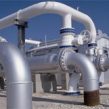
BALTIC SEABED GAS PIPELINE PROJECT: FAR FROM A DONE DEAL
Publication: Eurasia Daily Monitor Volume: 4 Issue: 100
By:

Leaders of Estonia and Lithuania have publicly joined the growing ranks of critics and skeptics regarding Nordstream, the Russo-German Baltic seabed pipeline project for Russian gas. With Nordic countries along the proposed pipeline route raising environmental and security concerns, its commercial rationale increasingly questioned, and Russia’s capacity to supply the projected gas volumes doubtful, this pipeline project seems far from a done deal (see EDM, April 23). The European Union’s initial approval of it looks overtaken by events as well as hardly making a practical difference.
Opening an international energy forum in Tallinn on May 14, Estonian President Toomas Ilves cautioned the European Union that over-reliance on Russian gas is “simply not rational” and that overall dependence on Russia’s energy systems “involves high levels of risk.” Estonian Economics Minister Juhan Parts, in turn, told the forum that the Nordstream consortium’s recent proposal to lay the pipeline through Estonia’s maritime economic zone “arouses serious concern” (BNS, Interfax, May 14).
On May 21, Lithuanian Prime Minister Gediminas Kirkilas told an international conference on energy security in London that the Gazprom-led consortium has not responded to his government’s request for an independent environmental assessment to be undertaken regarding this project. Moreover, he noted, the project’s cost is excessive and likely to outrun the consortium’s already high estimates. Alluding to Germany’s apparent assumption that it “would be stronger by dealing with Russia on a bilateral basis,” Kirkilas called for EU solidarity in negotiating with Gazprom.
The Nordstream consortium estimates this project’s cost at $6.6 billion. According to energy expert Alan Riley of London’s City University, speaking at the same conference, that estimated cost exceeds by a factor of three the cost of building an overland pipeline of equivalent capacity. Moreover, the project’s actual cost seems likely to escalate beyond that initial estimate (BNS, Reuters, May 21).
Thus, the choice of a seabed pipeline over alternative options means high prices of gas to end consumers in Germany and other European countries. The consortium would enjoy wide latitude to dictate prices to consumers if Gazprom and its German partners — Ruhrgas and Wintershall — lock in those markets thanks to the Nordstream pipeline.
Politically, the Nordstream pipeline would “draw a new border across Europe,” according to the Polish Sejm’s [parliament] foreign policy committee chairman Pawel Zalewski. In Warsaw’s view, the seabed pipeline would cut off the EU’s new member countries Poland and the Baltic States from the old EU countries, particularly Germany: “The latter would be connected directly to the Russian valves while the others would be left alone [in a crisis], hoping for Russia’s mercy” (Financial Times Deutschland, May 18).
The Nordstream pipeline was designed to carry 27.5 billion cubic meters of Russian gas annually starting from 2010 in the first stage and another 27.5 billion starting in 2012 in the second stage, for a total of 55 billion cubic meters over a 25-year period. Those projections, announced in October 2005 and not officially revised since then, look unrealistic by now. The time frame is being stretched out, investment is not lined up, and Russia itself faces a probable deficit of gas from 2011 onward, relative to its supply commitments internally and externally. The Yuzhno-Russkoye gas field in western Siberia — which was touted to the German public in 2005-2006 — can only supply a part of those projected volumes in the early years. Recognizing this fact, the Kremlin then defined the Shtokman field as the main source for Nordstream, but seemed to reverse itself again by announcing plans to assign Shtokman’s early output primarily to liquefaction. All this is tentative and hypothetical, as Russia’s exclusion of Western stakeholders from Shtokman is delaying by some years the field’s development.
A series of recent developments have cast heavy doubt on Russia’s reliability as an economic partner generally, not just with respect to gas. Russia is conducting several politically motivated commercial “wars” concurrently: agricultural produce and wine embargoes against Moldova and Georgia, interdiction of meat imports from Poland, cut-off of crude oil supplies by pipeline to Lithuania, and most recently the cyber-war launched by Russia’s top-level authorities against Estonia — a novel form of economic warfare.
As Kirkilas informed the London conference, Russia’s oil pipeline monopoly Transneft announced the preceding week that supplies to Lithuania are being suspended indefinitely. According to Transneft, use of the pipeline to Lithuania is “uneconomical” and consequently there are no plans to repair it (BNS, May 21). Transneft stopped deliveries in July 2006, citing a minor leak on that line in Russian territory, but in fact retaliating against Lithuania for selling the Mazeikiai refinery to a Polish company, in preference to a Russian one. During the intervening 10 months, the Russian government has ignored all Lithuanian and EU requests for information and offers of assistance if necessary to repair that pipeline. The oil cut-off is now all but official.




